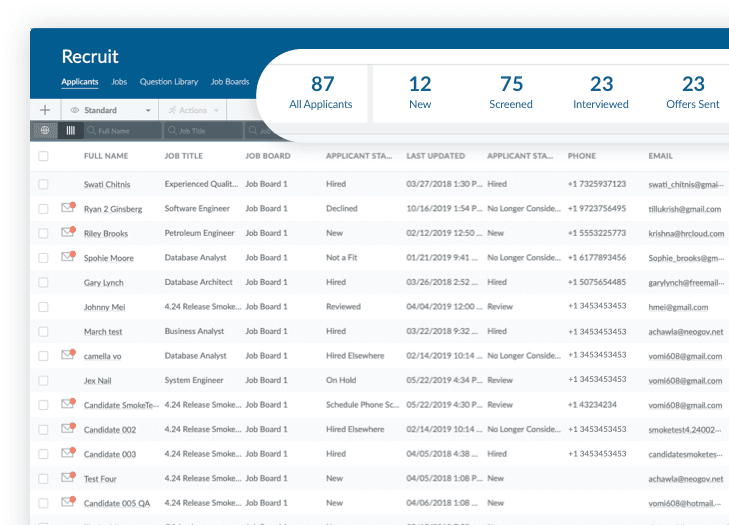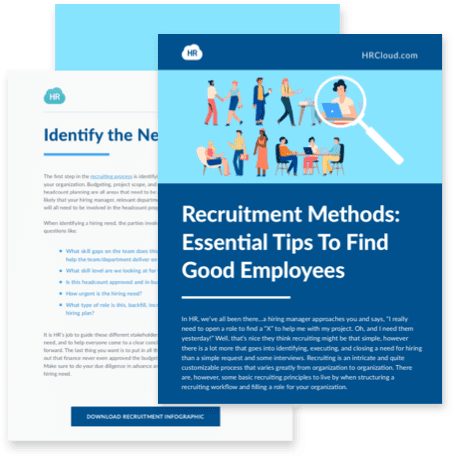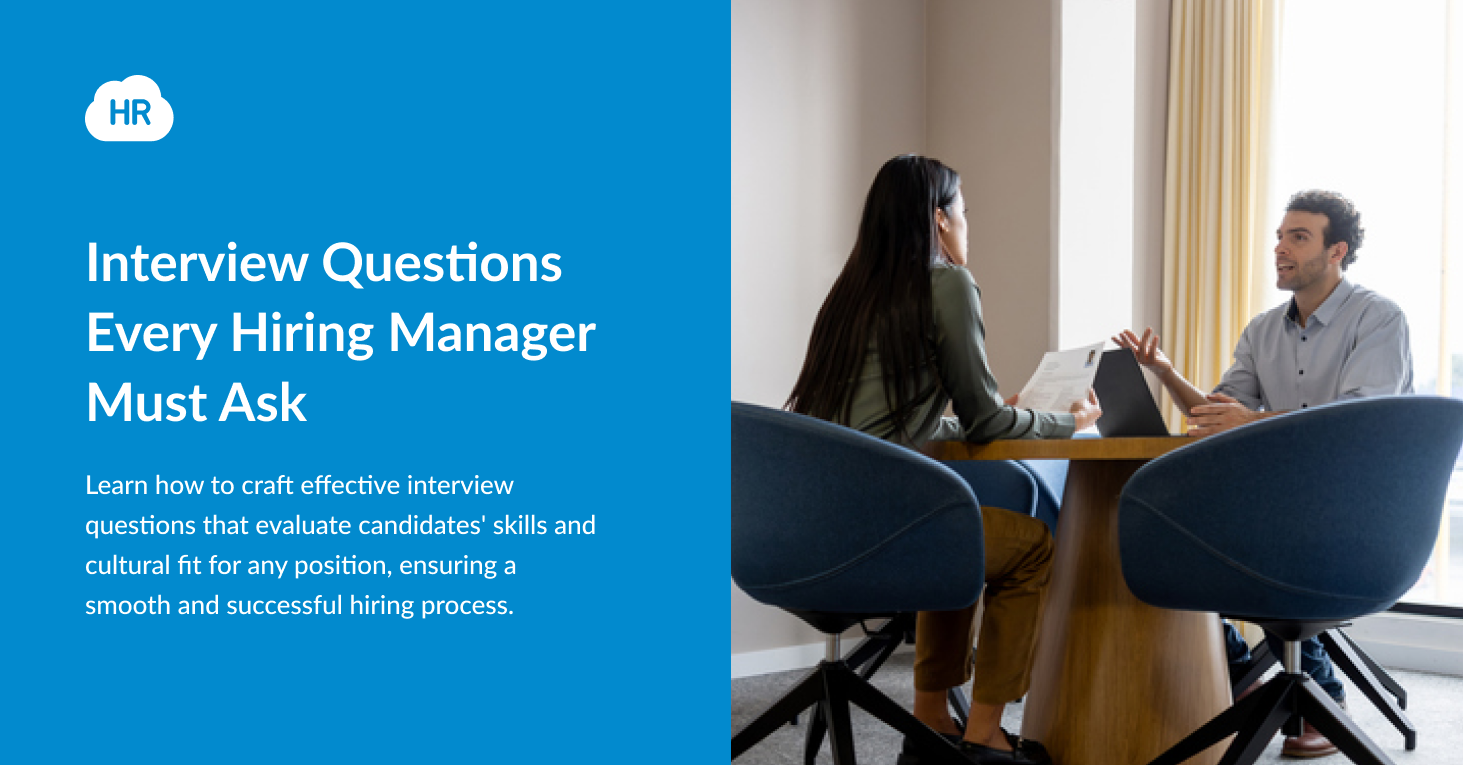The increasing competition in the job market and the rising economy have made the hiring process more challenging than ever. According to Manpower Group, 75% of employers struggle to find the right candidates to fill vacancies. A significant factor contributing to this issue is the skills gap.
Many job applicants lack the necessary skills, and fraudulent practices during recruitment have only heightened concerns. Reports show that 30-50% of candidates cheat during entry-level assessments, though this decreases to half for lateral job assessments.
However, job interviews provide an opportunity for hiring managers to evaluate candidates more comprehensively. To do this effectively, they need to ask well-rounded questions to assess both technical skills and soft skills. This is where tools like HR Cloud’s Applicant Tracking System (ATS) come into play. HR Cloud offers a robust ATS that equips employers with the right questions and insights to evaluate candidates holistically, streamlining the hiring process and ensuring the best talent is identified.
Hence, this blog discusses the essential questions employers should ask during the hiring process to comprehensively evaluate a candidate's technical and soft skills, ensuring they are a good fit for the role and company culture.
Introduction to Interview Questions
A set of right interview questions helps assess the communication and technical skills of the interviewee. Hiring can be time-consuming, so it is essential to have a structured interview process.
The quality of your interview questions is important to ensure the accuracy of your hiring decisions. Effective questions will help you understand the candidate's skills, experiences, and compatibility with the company's needs. However, the interview process should be dynamic because rigidity in question won’t help you evaluate each candidate’s skill.
That’s why it is best to have a set of questions ready with you so that you can change your strategy according to the situation. You should have questions about all sets of difficulties (easy, medium, and difficult), straightforward and tricky, and practical and situation-based. All these questions will help the hiring manager understand whether the candidate is a perfect fit for the organization’s environment.
There are four main criteria from where you should pick or curate questions:
-
Behavioral (The set of behavioral questions helps to analyze the behavior or personality of the candidate, which is an indication of the candidate’s future performance)
-
Situational (The set of situational questions helps to evaluate how smartly and creatively a candidate solves an unknown, out-of-the-blue problem)
-
Technical (The set of technical questions assists in analyzing the candidate’s technical skills while hiring)
-
Culture-Fit (The set of culture-fit questions assesses the candidate’s adaptability, teamwork, and alignment with the company’s values and environment)
Now, let’s explore the types of questions you can ask across different segments when conducting a recruitment drive for any role, ensuring a comprehensive evaluation of both technical abilities and soft skills.
I. Set of Behavioral Interview Questions
Behavioral interview questions help you understand how candidates have handled a certain situation in their past jobs. These questions can evaluate the problem-solving and conflict-resolution skills of candidates.
Understanding a Candidate's Past Behavior
These questions will take you beyond the surface when assessing the qualifications and skills of candidates.
1. Probing Questions to Assess Problem-Solving Skills
Problem-solving is one of the important skills in most roles. To assess a candidate's ability to solve problems, consider asking related questions.
Example: "Can you describe a challenging problem you faced in your previous job and how you solved it?"
This could be a very good question in determining a candidate's problem-solving skills and the ability to undertake complex situations. Look for answers that illustrate analytical thinking, creativity, and perseverance. For instance, if the applicant explains something like identifying the root cause of an issue that kept occurring and then providing a solution to prevent it from happening again. This shows strong problem-solving skills that are needed in complex situations.
2. How to Gauge a Candidate’s Ability to Work in a Team?
Teamwork is essential in most work environments. Effective team members communicate well, collaborate efficiently, and support one another.
Example: "Tell me about a time when you had to work closely with others on a project. How did you handle differing opinions or conflicts?"
This question assesses the candidate's ability to understand team dynamics and resolve conflicts. A strong response should highlight their collaborative spirit, communication skills, and ability to contribute positively to team efforts. For instance, a candidate might describe a situation where they facilitated a team discussion to reach a solution, ensuring all voices were heard.
3. Uncovering a Candidate’s Approach to Conflict Resolution
Understanding how a candidate deals with conflicts helps you understand interpersonal and emotional intelligence. Here is a good example of a question that you can ask candidates.
Example: "Can you help me understand an instance of resolving a conflict you had with your team member?"
Effective answers will explain how constructively the candidate has resolved the conflicts, whether through active listening or finding common ground through open dialogue. A well-balanced approach to conflict resolution will be what a candidate should be looking to add to your company.
List of Some Other Behavioral Questions
-
What’s the most difficult situation you had to deal with in your workplace, and how did you resolve it?
-
What is your approach to solving problems?
-
What’s the best idea that you have suggested to the team during a team-based project?
-
Can you describe a situation where someone consulted you for help? How did you help them?
-
Do you prefer to work with a team or without a team?
-
Are there any decisions that you have regretted and how did you overcome them?
-
What is your strategy to juggle between multiple projects?
-
How do you handle things when certain important tasks pop up when you already have a busy day ahead of you?
-
Tell me about the time when you worked under pressure. What was the result?
-
How do you handle failures?
All these questions will help you assess the candidate’s behavioral traits, ensuring you make an informed hiring decision based on a well-rounded evaluation.
II. Set of Situational Interview Questions
Situational interview questions will help you get a sense of how a candidate would approach some hypothetical situations related to the job. These questions normally shed light on how a candidate thinks and their decision-making ability.
Evaluating a Candidate’s Thought Process
Situation-based interview questions evaluate the approach that a candidate will take in hypothetical situations. This will help you understand the thought process and decision-making ability of the candidate.
1. Presenting Hypothetical Scenarios to Assess Decision-Making Skills
Present the interviewee with a relevant hypothetical scenario, asking them how they would arrive at conclusions.
Example: "Imagine you are given a project with a tight deadline and limited resources. How would you prioritize your tasks and ensure the project’s success?"
This will help you understand candidates’ strategic thinking ability and how well they can work under pressure. Look for responses that indicate a clear, logical approach toward resource prioritization with effective time-management skills.
2. How to Gauge a Candidate’s Problem-Solving Abilities Under Pressure
To evaluate candidates' problem-solving ability in high-pressure scenarios, ask them relevant questions.
Example: "Describe a situation where you had to make a critical decision quickly. What did you learn from it?"
This question assesses the candidate's ability to work under pressure and how quickly they can learn. Effective responses to the previous question should highlight a candidate's ability to stay calm, quickly analyze the situation, and solve the problem effectively.
3. Testing a Candidate’s Adaptability to New Situations
Adaptability is important as it helps interviewees fit into challenging work environments. This can be tested using questions related to such situations.
Example: "How would you handle a situation where your project requirements suddenly change? What steps would you take to adapt?"
A good answer will indicate how flexible the candidate is in adjusting the strategy whenever needed. The candidate might answer how they would reassess the project's goals, communicate them to all stakeholders, and adjust the strategy for the new requirements.
List of Some Other Situational Interview Questions
-
How would you handle a sudden surge in workload due to an unexpected client request?
-
What approach would you take if a project is nearing its deadline, but the team is behind schedule?
-
How would you respond if a client is unsatisfied with the final product despite following their specifications?
-
What steps would you take if a security breach occurred in your system, and how would you communicate this to the client?
-
If faced with a tight budget but high expectations from a client, how would you prioritize tasks and allocate resources?
-
How would you handle a situation where a team member is not meeting performance expectations, affecting project delivery?
These types of situation-based questions can help assess a candidate's problem-solving skills, adaptability, and decision-making when recruiting for various roles.
Be sure to track all candidate responses in Recruit ATS as you search for top talent. Want to learn more about ATS? See below.
Post Jobs, Evaluate Candidates,
and Hire the Best with ATS
(Applicant Tracking System)

III. Set of Technical Interview Questions
Technical interview questions are crucial in determining whether the candidate possesses the necessary experience and expertise required for the job role.
Assessing a Candidate's Skills and Expertise
The technical interview questions help determine whether a candidate's skills and knowledge match the organization's needs.
1. In-depth questions to Evaluate Technical Proficiency
For technical roles, it will be imperative to ask questions that test the expertise of the candidate.
Example: "Can you explain a complex technical concept you have worked on and how you applied it in a project?"
This question tests the extent of knowledge and capability to apply technical concepts in practical scenarios. Look for responses that indicate a good grasp of the concept, along with the ability to communicate complex ideas clearly.
2. Testing a Candidate’s Knowledge of Industry-Specific Tools and Software
Most technical roles require a good understanding of important tools and software. These questions are important for specialized roles that require good knowledge of common tools.
Example: "Highlight your experience using programming software. How did you use it in your previous work?"
This question allows one to assess the extent to which the candidate has experience in key tools and whether they have been able to use them successfully in their previous roles. A good answer will show hands-on experience with the tool or software.
3. How to Determine a Candidate’s Ability to Learn New Technologies?
The ability to learn quickly, adapt, and use new technologies is often required in many industries. Here is a question that you might ask a candidate.
Example: "Can you give an example of how you learned a new technology and used it in a practical situation?"
The effective responses will describe how the candidate was proactive in learning, quick to pick up new skills, and successful in applying them in their work.
List of Some Other Essential Interview Questions
-
How do you approach problem-solving in a high-pressure environment?
-
Can you describe a time when you had to adapt to a significant change at work?
-
How do you prioritize tasks when managing multiple deadlines?
-
What steps do you take to ensure clear communication within a team?
-
How do you handle constructive criticism or feedback from peers or supervisors?
-
Can you provide an example of a challenging project you worked on and how you overcame obstacles?
From a technical perspective, you can create numerous questions to assess the candidate’s skills effectively. Ensure that the questions prompt brief and straightforward answers. When hiring for technical roles, consider incorporating small coding challenges to elevate the difficulty level of the interview.
IV. Set of Culture-Fit Interview Questions
Culture-fit interview questions help you assess how well a candidate will integrate into your work environment. These questions are essential for any role, as candidates need to be adaptable and aligned with your organization's corporate culture. If they are not, it can create challenges for both the individual and their colleagues.
Ensuring Alignment with Company Values
Cultural fit is necessary for long-term success and employee satisfaction. The right questions can help you know whether a candidate shares similar ethics as your organization.
1. Exploring a Candidate’s Motivation for Joining the Organization
Try asking similar questions that help you understand the behavior of the candidate.
Example: "What attracted you to our company, and how do you see yourself contributing to our mission and values?"
The above question will help you understand the candidates' interest in the organization and whether they match your values and ethics. Watch out for responses that indicate the candidate has a clear understanding of your values.
2. Assessing a Candidate’s Compatibility with Team Dynamics?
Assessing a candidate's compatibility is essential to avoiding poor cultural fits. Try asking relevant questions that will help you understand the candidate's approach.
Example: "Help us understand a work environment where you have struggled. How do you think our team dynamics compare?"
The question will help you understand the level of self-awareness of the candidates and whether they match your team's culture. Look for insights into how the candidate can adapt to different work environments.
3. How to Identify Red Flags in Terms of Cultural Fit?
To identify potential red flags, consider asking questions that test the behavior of candidates.
Example: "Describe a time when you were not happy with company policy. How did you handle it?"
This question will allow you to gauge whether the candidate is a cultural misfit. Beware of responses that indicate a mindset that is too rigid, or that simply can't adapt to the norms of the organization.
List of Some Other Culture-Fit Questions
-
What does your ideal workday look like?
-
Do you want to achieve work-life balance, and how can you ensure it?
-
What expectations do you have from the senior management or leaders that would be possibly in your team?
-
Why do you want to work with our organization?
-
Which management style do you prefer to work with?
-
You can come up with other similar questions as well to assess whether they are a perfect fit for the corporate culture.
You can come up with other similar questions as well to assess whether they are a perfect fit for the corporate culture.
The Bottom Line
A well-structured interview process will help you identify the right fit by comparing the abilities of the candidate to the requirements of the job. To effectively hire the right candidate, try using these behavioral, situational, technical, and culture-fit questions that will give you an overview of the candidate and help you hire the right candidate. Effective interview questions should be tailored to the specific role, such as hiring WordPress web developers or other tech positions, to make informed decisions and find the right candidate.

To learn more about recruitment methods, download our ebook now.
Author Bio:
This article is written by a marketing team member at HR Cloud. HR Cloud is a leading provider of proven HR solutions, including recruiting, onboarding, employee communications & engagement, and rewards & recognition. Our user-friendly software increases employee productivity, delivers time and cost savings, and minimizes compliance risk.
Keep Reading
Retention Reset: How to Keep Your Best Talent in 2025
More employees are walking away from their jobs in 2025 not just for better pay, but for
The Most Common Hiring Mistakes in the Healthcare Industry
The hiring process can be tedious in the healthcare industry, and it may be tempting to

